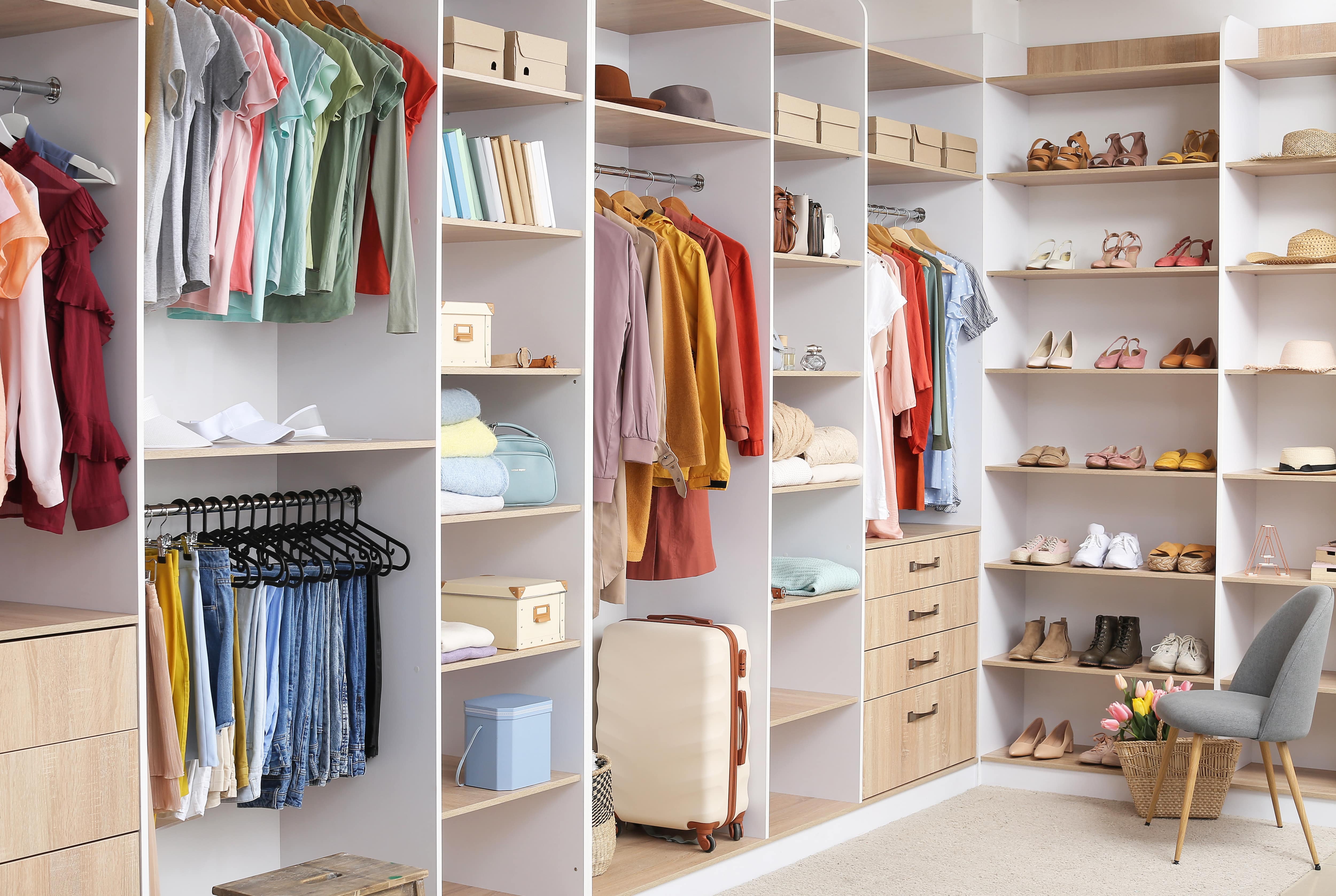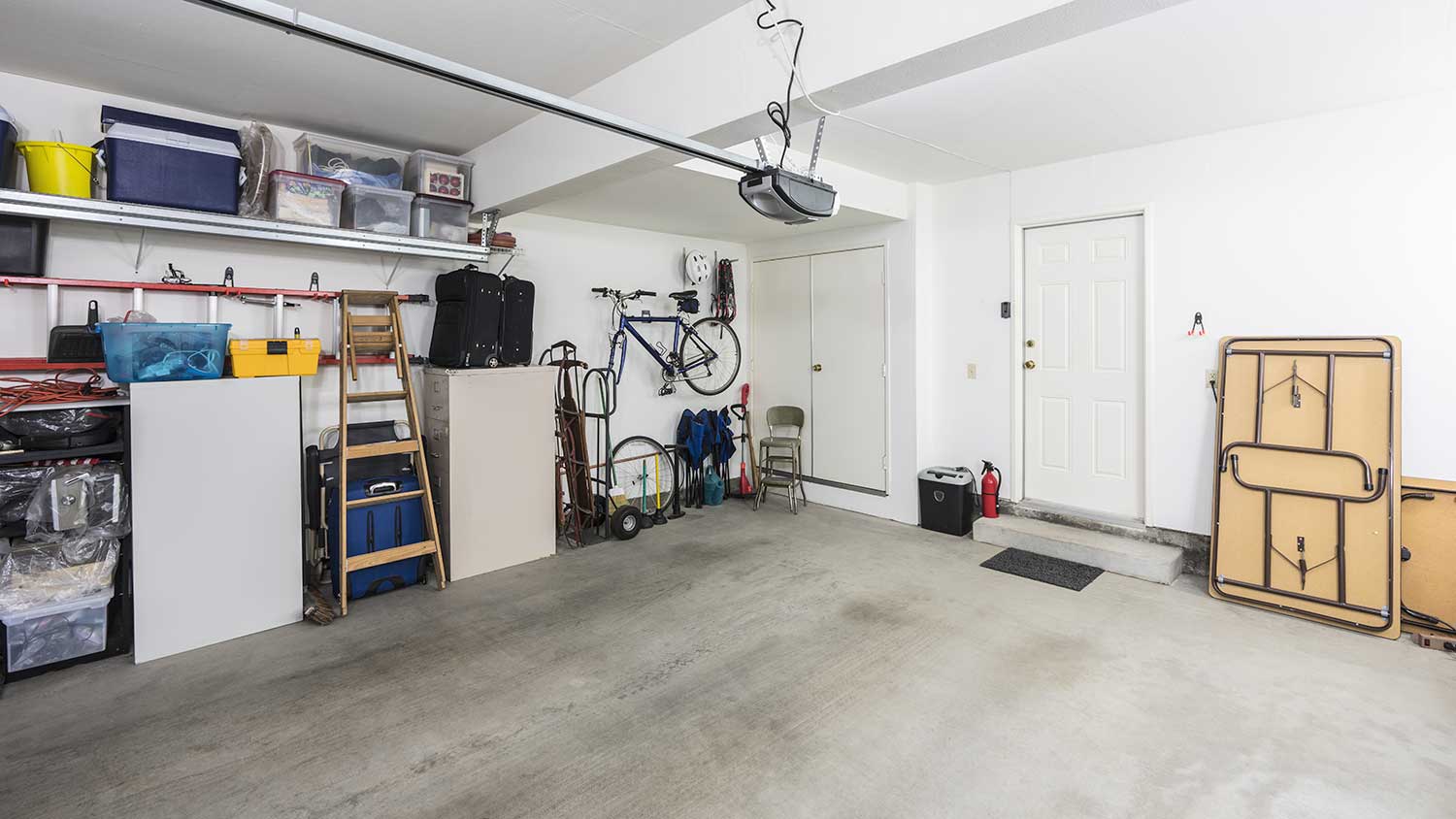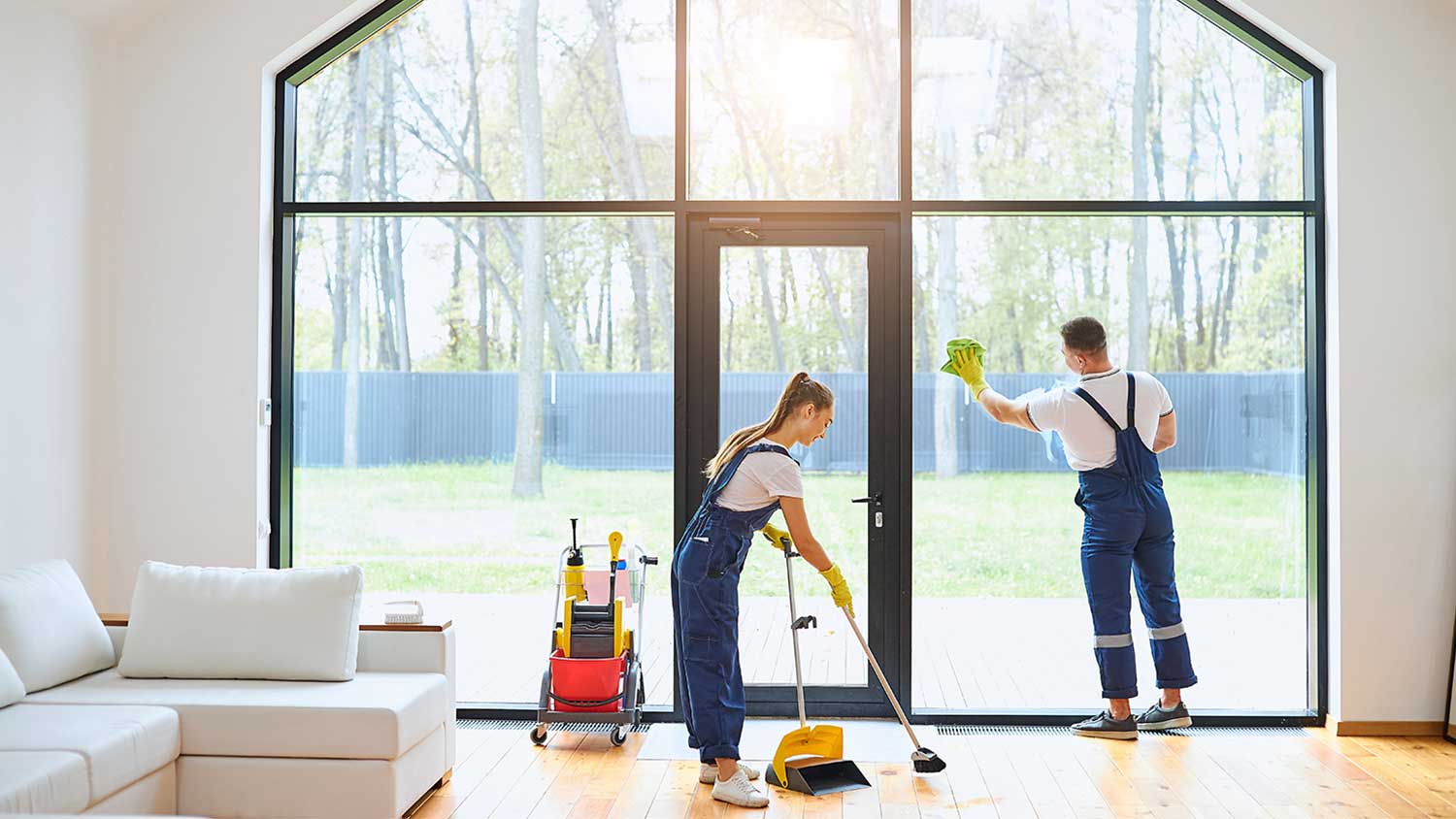
Explore the benefits of hiring a professional organizer for home organization—see what pros do, costs, and how to decide who to hire
Professional closet organizers cost an average of $1,544.


A closet organizer can reclaim valuable space and simplify your morning routine.
Most homeowners spend $628 to $2,526, with an average investment of $1,544.
Costs shift with materials, design complexity, and local labor rates.
Bringing in a pro means precise installation and one less project on your to-do list.
This article was created using automation technology and thoroughly fact-checked and edited by HomeAdvisor Editor Ryan Noonan.
On average, installing closet organizers costs between $627 and $2,527 , with an average price of $1,543 . Depending on the project's scope, you might spend as little as $150 for a small organizer or up to $5,000 for a high-end overhaul.
Factors like the type of organizer (prefab or custom), materials used, and additional features like lighting or accessories influence the total cost. Closet organizers maximize storage space, add value to your home, and keep your belongings tidy. Planning your budget carefully ensures you get the best value from your investment. Hiring a professional ensures that your closet organizer is installed correctly and efficiently, saving you time and potential headaches.
Several variables influence what you’ll pay, including material choice, prefab versus custom components, and local labor rates. Upgrades—like built-in lighting or soft-close drawers—add to the total, as do repairs to tired shelves or hardware. Finally, keep scope in mind: taming one walk-in will cost less than asking a pro to overhaul every bursting closet in the house.
| Number of Closets | Average Cost |
|---|---|
| 1 | $100–$200 |
| 2 | $150–$250 |
| 3 | $175–$300 |
| 4 | $200–$350 |
The price rises with every additional closet. Tackling a single walk-in is cheaper than adding the spare-room reach-in or the kids’ wardrobes to the plan, so decide which spaces need a pro’s touch before booking.
Larger footprints mean more time, materials, and planning. Expect to pay more for an organizer to streamline a full walk-in than for a simple reach-in with just a rod and a shelf.
| Closet Size | Average Cost |
|---|---|
| Small 4-foot standalone | $100–$150 |
| Standard 6-foot reach-in | $125–$200 |
| Small 4-foot x 8-foot walk-in | $150–$250 |
| Large 7-foot x 9-foot walk-in | $200–$300 |
If your closet is packed floor-to-ceiling, an organizer may add a $50 to $100 surcharge to cover the extra sorting time. The upside? Many pros include advice or design tips for a fabulous closet that can reshape the way you store your wardrobe.
Prefab kits keep upfront costs down, but they’re typically built from lower-grade MDF and laminate, so they may not last as long as custom wood systems. They are typically made of medium-density fiberboard (MDF) with a laminate coating, are less durable than other options, and aren't customizable.
Custom closet systems cost anywhere from $150 for a basic unit using wire or plastic inserts to $5,000 for a large, high-end wood installation. The features you want and the size of the closet also impact the price. A pro will also spend at least eight hours on labor.
These systems connect to your smartphone or work by remote control and let you choose your clothes without digging through your closet.
If you don't need a full organizer system or prefer a customized setup, you can purchase and install individual components. Various products are available to help you create a closet that fits your needs.
As the quality and size of closet shelves increase, so does the price.
If you're paying for the cost of built-in shelving , you'll pay more than prefab ones in labor costs because the installation process is more involved and requires some remodeling. MDF built-in shelves cost $150 to $400, while high-end glass ones cost $750 to $1,200, plus labor.
Closet drawers are useful and let you keep items tidy and out of sight. Wire, plastic, and MDF are the most affordable. Wood, glass, and metal are the most expensive. Allow at least an hour for a pro to install one to three drawers.
Closet cabinets split up large, unused space into smaller, practical storage areas. Open-faced cube cabinets are among the most common and are often used for shoe storage or adding storage bins. You can also choose cabinets with doors to keep things neat.
Closet organizers are available in a range of different materials, each impacting their look, durability, functionality, and cost.
Wire closet organizers are among the most affordable and straightforward to install. They're also highly customizable, with many different individual inserts and setups available. They're utilitarian and practical but not overly durable.
Metal closet organizers are somewhat more durable than wire. While it won't add as much value to your home or make as much of an impact as higher-value materials, metal is a good middle-of-the-road option.
Plastic closet organizers aren't the most durable option, but they're lightweight, easy to install, and available in a wider choice of colors and styles than wire or metal.
Wood closet systems are elegant and luxurious, so they're naturally more expensive than other options. They're long-lasting and durable, and you can add drawer fronts and cabinet doors to keep your apparel and accessories tidied away.
These organizers also require more labor, particularly if you're going with a custom wood system.
Laminate is one of the more expensive materials, alongside wood. However, laminate often looks more high-end than plastic or metal and comes in ready-to-assemble kits that you can construct yourself.
The cost of labor for closet organization depends on the type of professional you hire and your location. The primary professionals involved in closet organizer installation are handypersons, carpenters, and professional closet installers or home organizers.
Labor costs vary based on the professional you hire and your location. Handypersons charge $50 to $100 per hour, carpenters charge $70 to $120 per hour for custom builds, and professional closet installers may charge $60 to $200 per hour or offer a flat fee.
Consider adding features like lighting or accessories to enhance your closet’s functionality and aesthetics.
Adding lighting to your closet enhances the space both for practicality and aesthetics.
Once your organizer system is complete, you may decide to replace the closet door to give it a fresh look that matches its new interior.
A variety of closet accessories help fight clutter by grouping items together. From storage bins to shoe racks, here are some closet accessories to consider as you plan out and budget for your closet organization project.
Simple plastic storage bins cost the least, while more expensive options are made of stylish materials like seagrass, wicker, or fabric.
Closet rods provide space to hang clothing, bags, purses, or even shoes with the right hanging solution.
A tie rack makes a great solution for hanging up ties, keeping them from wrinkling, and keeping your closet looking tidier.
On the lower end, you can find small plastic shoe racks for a few pairs of shoes, and on the high end are larger shoe racks made of more durable materials like wood.
DIY is doable if you have time and the right tools, but a pro brings laser-accurate measurements, layout advice, and installation know-how that can save you from costly re-dos. Their experience helps you choose organizers that fit your space, style, and budget—and they’ll finish the job quickly so you can start enjoying the extra storage.
No place is more important than your home, which is why HomeAdvisor connects homeowners with local pros to transform their houses into homes they love. To help homeowners prepare for their next project, HomeAdvisor provides readers with accurate cost data and follows strict editorial guidelines. We surveyed thousands of real customers about their project costs to develop the pricing data you see, so you can make the best decisions for you and your home. We pair this data with research from reputable sources, including the U.S. Bureau of Labor Statistics, academic journals, market studies, and interviews with industry experts—all to ensure our prices reflect real-world projects.
From average costs to expert advice, get all the answers you need to get your job done.

Explore the benefits of hiring a professional organizer for home organization—see what pros do, costs, and how to decide who to hire

Can I hire someone to clean out my garage? Learn who to hire, how pros get it done, and when to call junk removal services.

Who to hire to deep clean your house? Learn why house cleaners are best, what they do, and deep cleaning costs to plan your project.

Find out how much professional apartment cleaning service costs based on apartment size, cleaning services chosen, and deep cleaning options.